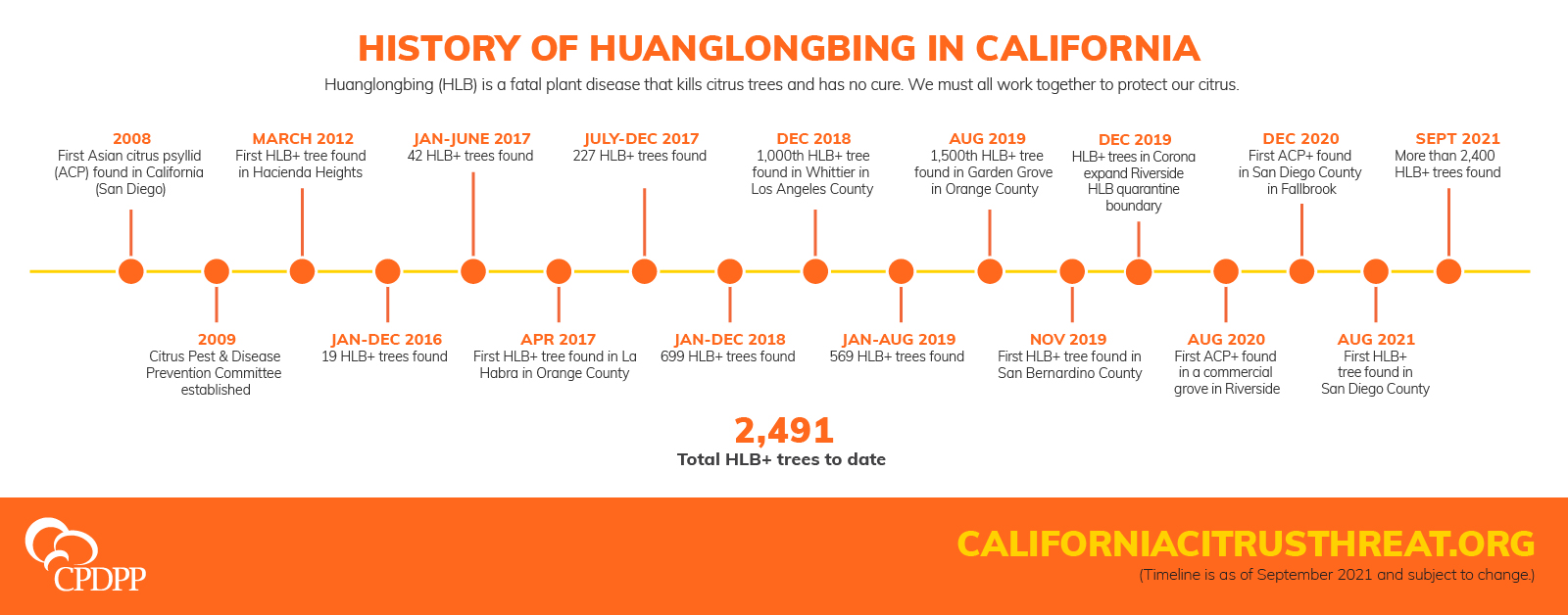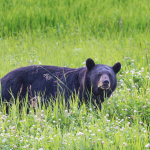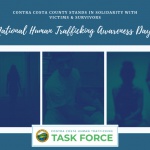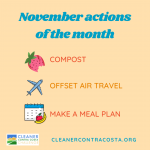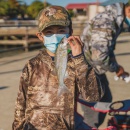A dangerous plant disease called Huanglongbing (also known as HLB) has been found in California, endangering countless backyard citrus trees and the state’s $3.4 billion commercial citrus orchards. While not harmful to human health, the disease is fatal for citrus trees. There is no cure and infected trees will die and need to be removed.
California homeowners – 60% of whom are estimated to own citrus trees – play an important role in protecting our state’s citrus and are being asked to protect their own backyard trees by searching for signs of the disease and the pest that can spread it, the Asian citrus psyllid.
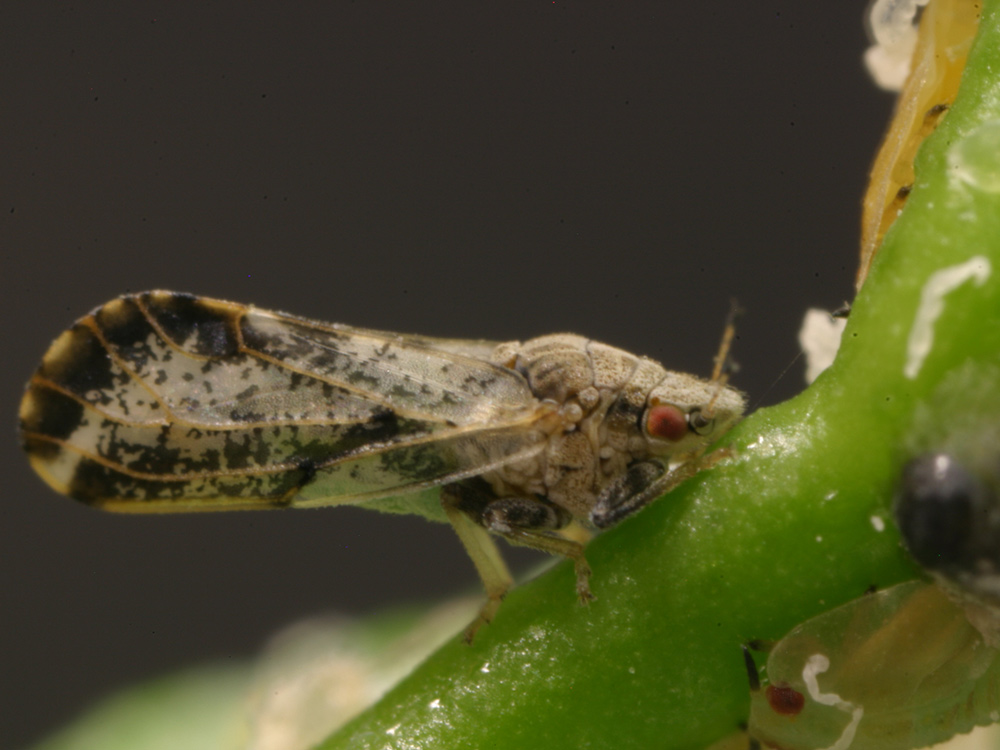
Asian Citrus Psyllid is known to spread Huanglongbing, a disease that kills citrus trees.
Learn how to detect Huanglongbing
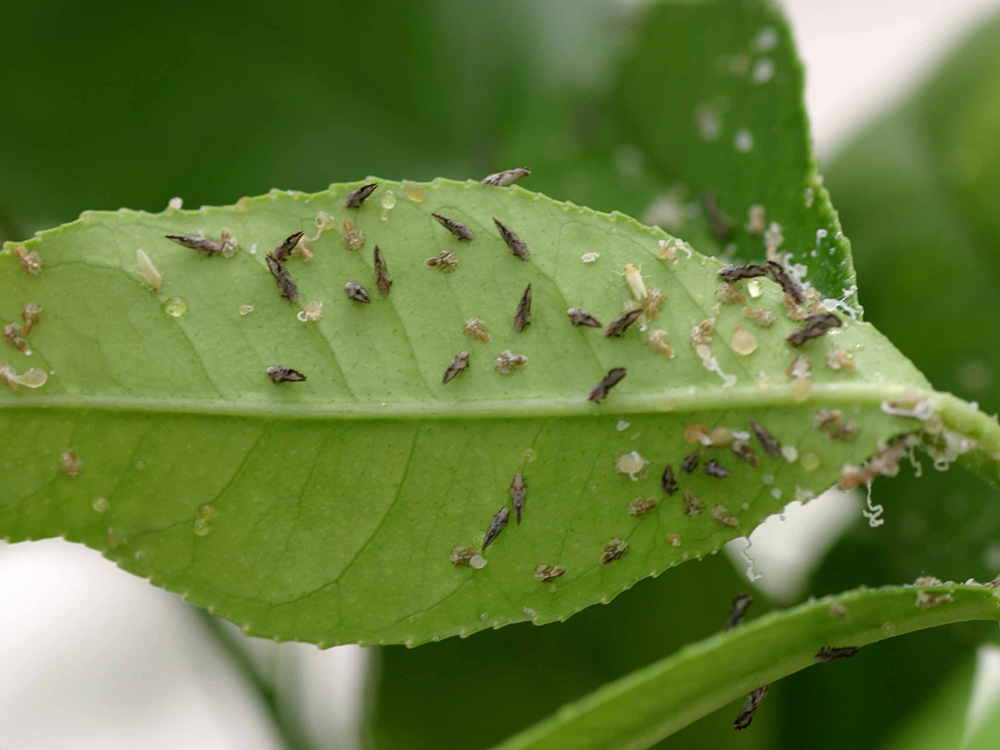
Asian citrus psyllids feed on citrus leaves and stems, and can infect trees with deadly Huanglongbing disease. Seen here are adults and young nymphs.
- Young Asian citrus psyllids, called nymphs, produce a white, waxy substance to direct honeydew away from their bodies.
- Asian citrus psyllids are small – no more than 1/8th of an inch long – brown, winged insects that feed on citrus tree leave
- Huanglongbing causes uneven yellowing in citrus tree leaves because nutrients are being restricted.
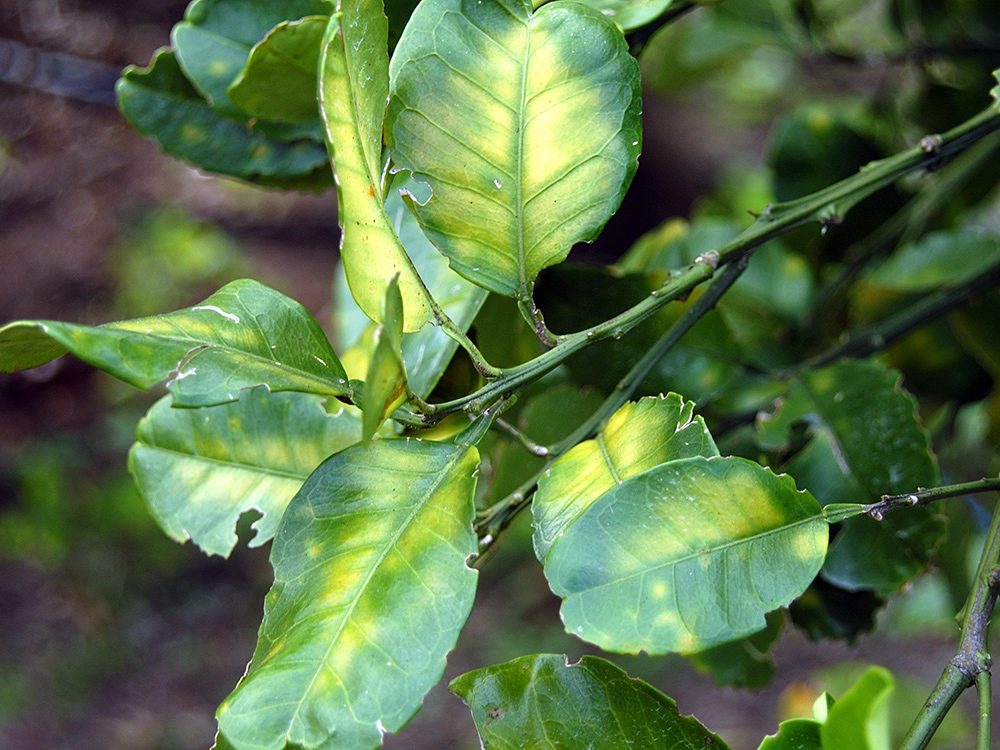
A symptom of Huanglongbing is yellow discoloration on leaves that is asymmetrical, meaning not the same on both sides of the leaf.
- Huanglongbing is also known as citrus greening disease because it causes fruit to stay green and not fully ripen.
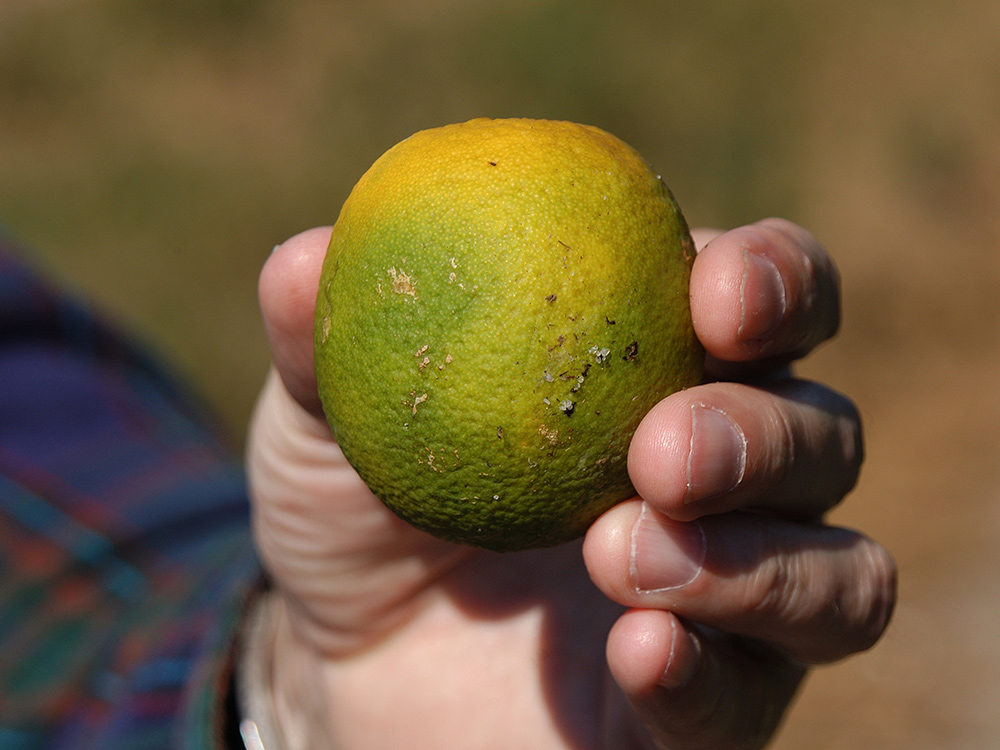
- Agriculture officials track the presence of pests like the Asian citrus psyllid by placing yellow sticky traps in citrus trees throughout the state. When you allow these traps on your property, you help protect California citrus.
- If you think you have spotted the pest or disease, call the free statewide pest hotline at 800-491-1899.
For more information and to find out what to look for, visit www.CaliforniaCitrusThreat.org. If you think your tree has the Asian citrus psyllid or Huanglongbing, act fast. Time is critical. Call the California Department of Food and Agriculture hotline at 800-491-1899
